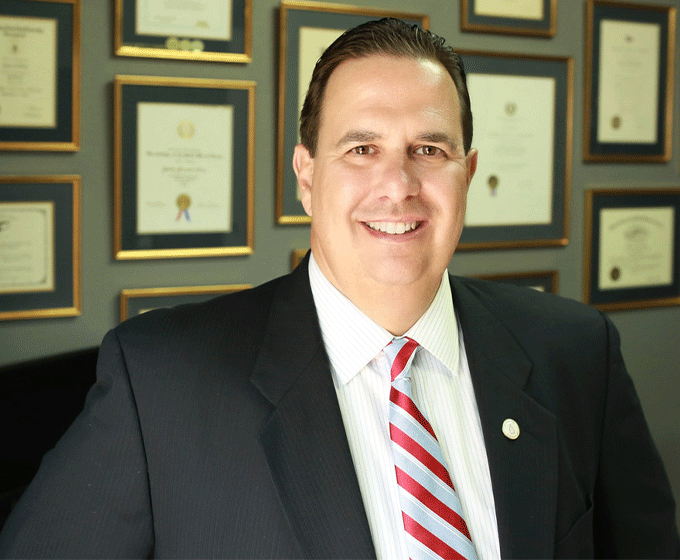
Javier Oliva is a senior lecturer in the Department of Political Science and Geography and a San Antonio attorney.
APRIL 12, 2021 — Officials now estimate that 1 million immigrants will arrive on our southern border this year. This is no surprise; the U.S. immigration system has been broken for decades.
Congress continues to fail in passing comprehensive immigration reform—and due to this failure, the last two presidents have been forced to resort to executive actions.
Most, if not all, major immigration policy changes in the past five years have come through the pen of the president. Former President Donald Trump authorized 220 executive actions without the negotiation or compromise that Congress is bound to manage. It resulted in an immediate and radical change to America’s immigration policy.
Since President Joe Biden has been in office, he too has enacted executive orders—38 as of Thursday—reversing many of Trump’s executive orders. These inconsistent executive actions by our presidents have left Americans polarized, insecure and confused.
The term “comprehensive immigration reform” is often used to encompass the entirety of our immigration laws. However, this reform should be seen as many separate and distinct issues that can be addressed individually to achieve the change Americans desire.
Topics that need attention include immigration quotas, “catch-and-release rules,” the border wall, DACA, amnesty, refugees, guest worker visas and student visas. These issues compose our immigration system, and Congress has failed to address them meaningfully.
Addressing a joint meeting of Congress, Pope Francis said America is “the land of the free and the home of the brave” and that Congress has “a responsibility to enable this country, by your legislative activity, to grow as a nation.” His remarks were met with bipartisan support and applause.
Biden has removed most of Trump’s executive orders, which has motivated immigrants and refugees to rush to our border. However, these actions have consequences. Thousands of unaccompanied minors, drugs, human trafficking and human exploitation have created the humanitarian crisis we currently face, and the DHS is not equipped or financed to deal with the massive influx of people, particularly children at our southern border.
Issues like these persist from president to president, leaving Congress as the common denominator in the immigration reform failure equation.
Congress needs to roll up its sleeves and work together. Common ground is possible. Policy does not have to be a zero-sum game.
Congress can support immigration by allowing implementation of Deferred Action for Childhood Arrivals, establishing worldwide immigration quotas, supporting resettlement agencies for those approved and establishing work programs. At the same time, it can maintain border security by reinforcing consulates and embassies in foreign countries, giving citizens of foreign countries incentives to remain in their home country as they apply for citizenship and encouraging corporate presence in foreign countries to reduce foreign economic turmoil.
Measures like these can lift the burden off the Department of Homeland Security and immigration courts while providing an avenue for legal immigration that benefits the United States as well as the refugees and immigrants seeking U.S. citizenship.
It is time for Congress to put an end to the chaos that surrounds our immigration system by passing comprehensive immigration reform that will protect the security of our southern border, expand cooperation with the immigrant’s country of origin and offer compassionately just treatment to all immigrants.
As Pope Francis said in his closing remarks to Congress: “If we want security, let us give security; if we want life, let us give life; if we want opportunities, let us provide opportunities.”
UTSA Today is produced by University Communications and Marketing, the official news source of The University of Texas at San Antonio. Send your feedback to news@utsa.edu. Keep up-to-date on UTSA news by visiting UTSA Today. Connect with UTSA online at Facebook, Twitter, Youtube and Instagram.
Move In To COLFA is strongly recommended for new students in COLFA. It gives you the chance to learn about the Student Success Center, campus resources and meet new friends!
Academic Classroom: Lecture Hall (MH 2.01.10,) McKinney Humanities BldgWe invite you to join us for Birds Up! Downtown, an exciting welcome back event designed to connect students with the different departments at the Downtown Campus. Students will have the opportunity to learn about some of the departments on campus, gain access to different resources, and collect some giveaways!
Bill Miller PlazaCome and celebrate this year's homecoming at the Downtown Campus with food, games, giveaways, music, and more. We look forward to seeing your Roadrunner Spirit!
Bill Miller PlazaThe University of Texas at San Antonio is dedicated to the advancement of knowledge through research and discovery, teaching and learning, community engagement and public service. As an institution of access and excellence, UTSA embraces multicultural traditions and serves as a center for intellectual and creative resources as well as a catalyst for socioeconomic development and the commercialization of intellectual property - for Texas, the nation and the world.
To be a premier public research university, providing access to educational excellence and preparing citizen leaders for the global environment.
We encourage an environment of dialogue and discovery, where integrity, excellence, respect, collaboration and innovation are fostered.